Survey Results: Global Wellness Institute’s Spa Consultant Survey
by Lisa Starr and Michelle Cusanno
With over 121,000 (Global Wellness Economy Monitor – January 2017) spas in the world, you can rest assured that many of them benefited from the guidance of a spa consultant at some point in their development and operations process. But the spa consultant is a bit of an invisible guiding force. Spa consultants don’t get their name over the door of the business, and once a property is up and running, they are all but gone and forgotten, on to the next project.
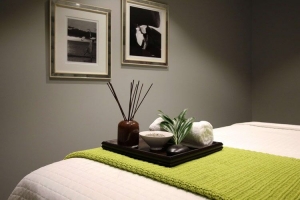
LaTherapie Spa
Spa consulting is a highly specialized profession. While there are several hundred full-time spa consultants in the world, they all have different capabilities and experience. Spa consultants do not share a specific college degree or certification or have their own association, but many of the global spa consultants have come together under the Global Wellness Institute’s Consulting Initiative. The Initiative aims to showcase the skills and abilities of spa consultants, and to give the consultants themselves a forum to share ideas and resources. While in general, they are all competitors, they also tend to work alone or in very small groups, and many have appreciated the opportunity to band together as a community that the Initiative has provided.
One goal of the Initiative has been to define the work that consultants do and to provide some basic framework for these activities for those who may benefit, such as real estate developers and owners, hoteliers, and entrepreneurs. Toward that end, the Initiative recently conducted a survey of its members in order to learn more about the size and scope of spa consulting globally and to gain some insight into the career path that can be shared with those who are interested in the field.
What are the competencies of a spa consultant to work to the best of their ability and reap the rewards? What are these rewards? How do they attain this knowledge and enjoy the process? The answers to these and other questions are among the insights that were gathered in the survey, excerpts of which follow.
How did our consultants acquire the necessary skills to do their work?
Over 70% have 4-year college and/or graduate degree. Some have hospitality training with large brands, while others are licensed in massage, esthetics or other modalities. About 60% worked as therapists or in fitness, 75% had spa management experience, and 44% hospitality management.
Was the spa consultant path formalized or unstructured?
Many said both; structured, in the case of large hospitality brands, and the opportunity to gain years of experience in spa operations at multiple properties. Others learned in the trenches, mentored by others, having started in the industry back when there was no formal education for spa management. Some have owned their own spa at some point before branching out to help others.
When asked about resources such as books or articles that helped to develop their skills, many recommended combing a broad array of news and information, not just the topics of spa & wellness; topics included design, art, music, drawing, hospitality, restaurant, and retail publications, blogs and websites. Harvard Business Review, Forbes Magazine, the GWI website, ISPA resources, and Malcolm Gladwell books also received mentions.
How did our consultants develop an acumen for management practices?
Learning on the job, experience. Corporate training programs in hospitality. “sharp eyes, open ears, reading, exchanging, being super-interested”. Mentors. Working from the ground up.
What steps, skills, resources would they recommend to those who would like to take their consulting to the next level?
Responses included “International exposure, continuous education, attend all industry events and participate in educational opportunities wherever possible. Work with the best, starting in operations. Get an MBA if you want to write feasibility studies and audits. Understand what consultancy really is, not just a title, and you must understand spa management from an owner perspective. Manage multiple different types and sizes of spas.
Opinion on the necessary characteristics of a successful consultant were broad and varied; deep understanding of the industry and organizational/project management skills; multi-dimensional knowledge; strong communications/interpersonal skills; organization and self-confidence; superior level of specialist knowledge; leadership and people skills; patience, ability to listen, communicate clearly; empathy; passion; honesty; ability to tailor clients dreams and aspirations into an end product that is operationally practical; time management; flexibility and patience as the process goes through lots of changes; ability to disseminate information; ethical and moral fiber; vision and continuous search for innovation; collaborative; creative problem solver; strong financial acumen; ability to delegate. Maybe the best comment; “Have fun and don’t take it too seriously – we are solving first-world problems.”
How did they respond when asked what was most effective consultation?
Most importantly, it was noted that earning the trust and support of owners and staff was an important measure. The ability to tell a beautiful story and also create a solid business model was the mark of success for many. Other positive outcomes included achieving objectives, happy clients, referrals/recommendations from said clients, delivering projects on-schedule and on-budget, and better revenue and profit margins. Walking away with the feeling that “I finished the project thankful that I was involved.”
Our consultants noted that 25% of them work on 3-5 projects per year and 25% work on more than 12. These projects are mostly hotel/resort, followed by day spas, wellness centers, and lastly, destination spas. Over 90% of consultants do project-based pricing, or a combination of project and hourly, and most payments are made on a schedule of set points throughout the project (75%). 28% have 4 or more employees.
Do they carry Professional Liability Insurance?
Over 70% said yes, although many work in markets or on smaller projects where it is not required. For hotel and other projects, it is often required by the brand or developer. Even among those who carry it, many said clients never ask about it.
How do their clients find a spa consultant?
96% noted client recommendations/word of mouth. About 60% said through a website. The average duration of their projects was 12-18 months, according to 30%. The average capital spend on projects was US $1.5 million, and 25% of consultants said they are seeing annual growth rates in their businesses of 13% and more.
In summation, these observations were shared: “Spa consulting is a business plain and simple. There are professionals who are ready to begin a consulting career and have knowledge and skills that will provide great value and benefits, but many people have not thought it through as a business and should spend more time analyzing the opportunity before making such a big decision. Be optimistic but realistic, especially when it comes to your income, financial security, career goals and enjoying the work that you do.” And never stop learning.
More information on the spa consulting competencies, such as concept development, financial forecasting, staff recruitment, and marketing plans, and additional useful tools and information can be found at globalspaandwellnessconsultants.com.
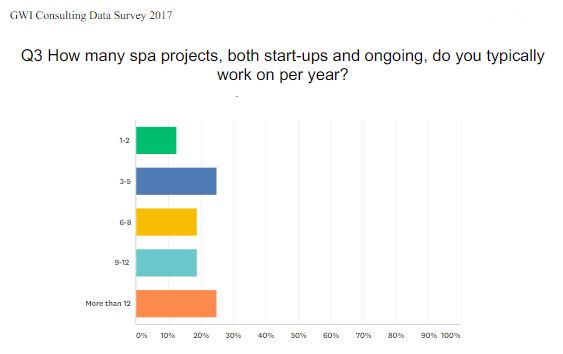



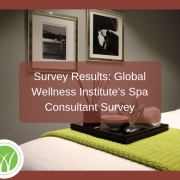
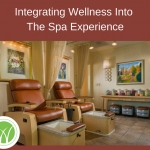
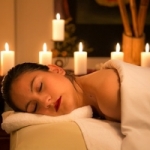
Leave a Reply
Want to join the discussion?Feel free to contribute!